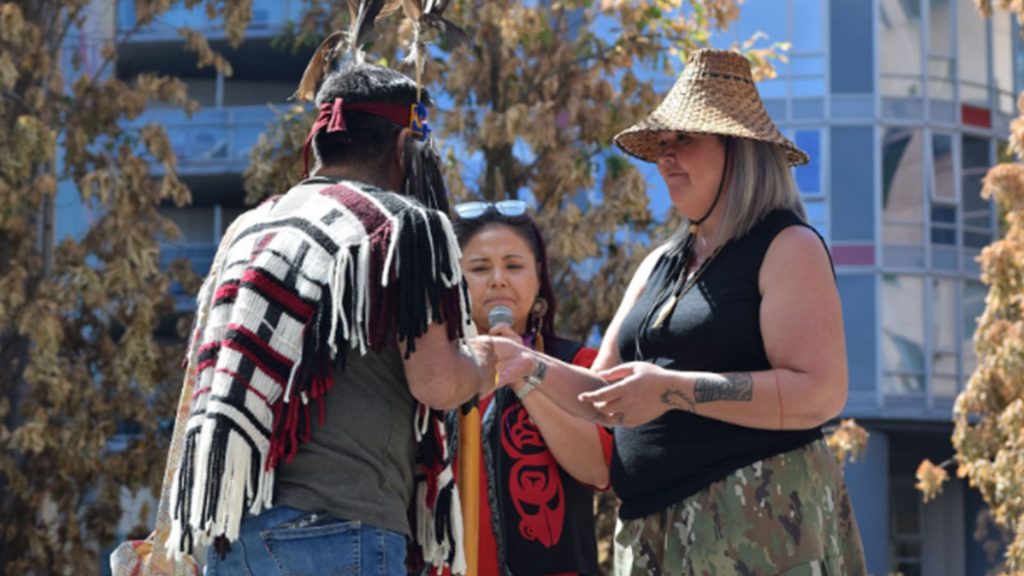
Robert Nahanee of Squamish Nation is gifted salmon from Wet’suwet’en homelands by Jennifer Wickham, who is part of the nation’s delegation in their fight against Coastal GasLink. Photo: Cara McKenna
Wet’suwet’en and Coast Salish leaders came together in solidarity over parallel pipeline fights on their sovereign homelands during a gathering in Musqueam, Squamish and Tsleil-Waututh territories.
The event was part of a wider cross-country tour by Wet’suwet’en hereditary leaders — whose delegation started at Six Nations on Aug. 2 and have been gradually making their way back to their Yintah (land) while building relationships with other nations.
They’re scheduled to make their final stop in Lheidli T’enneh homelands. To end the tour, the nation invited guests from all over to join them in Wet’suwet’en for 10 days of ceremonies for the land and waters.
During the event in Vancouver, leaders from Wet’suwet’en and local communities shared struggles around the Trans Mountain and Coastal GasLink pipeline projects — both of which are going through without the consent of many Indigenous nations and being built on unceded lands.
Charlene Aleck, a councillor with Tsleil-Waututh First Nation, talked about how her nation has been up against industry and government, trying to protect their waters from the Trans Mountain pipeline expansion.
“I know what you are protecting, and I know why,” she said to Wet’suwet’en.
“There has to come a time when we realize, enough is enough.”
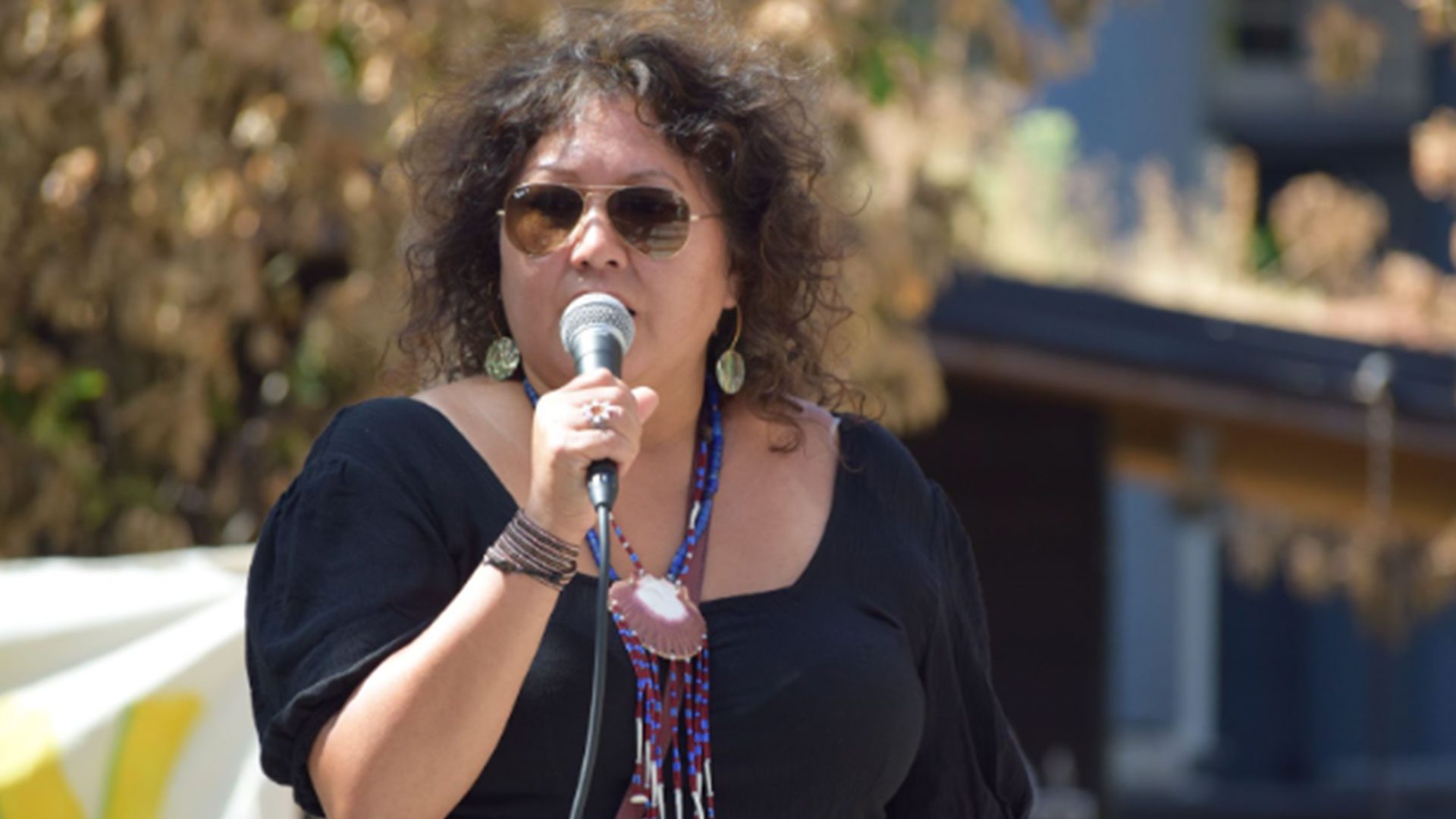
Wet’suwet’en Hereditary Chief Namoks said leaders wanted to visit nations across Canada following a Peace and Unity Summit that the nation hosted in late July.
“On the first day we brought the people on the territory to canoe, to drink the water, because when you drink that water it’s in your body, it’s in your DNA, it’s in your heart,” he said.
When travelling across the country on this tour, he observed other Indigenous communities that didn’t have the same access to clean water.
“It’s shocking to me that we talk to generations that have never had the ability to drink water out of their own creeks and rivers, and have not had the right to go swimming because of the poisons that are in their water,” he said.
“I don’t think we should take for granted what we’re protecting.”
The Wet’suwet’en tour to solidify relationships with other nations — called Strengthening Our Sovereignty — was urgent, explained Jennifer Wickham.
Wickham is the media co-ordinator for the Gidimt’en Checkpoint and a member of Cas Yikh (Grizzly Bear House) in the Gidimt’en (Bear/Wolf) Clan of the Wet’suwet’en.
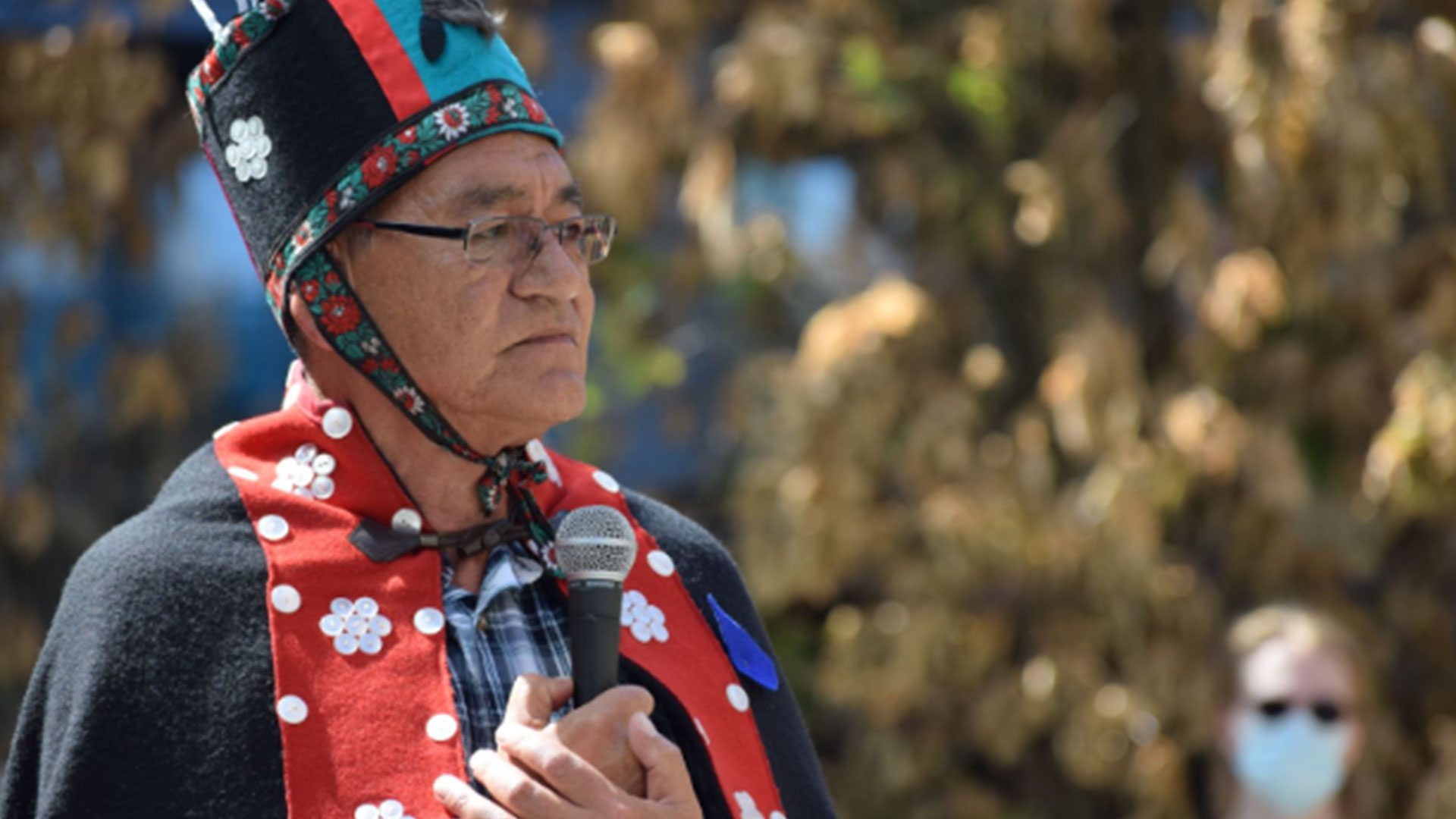
In 2020, hereditary chiefs issued an eviction notice to Coastal GasLink, which wants to drill under the Wedzin Kwa (river) to construct its 670-kilometre natural gas pipeline.
But despite the lack of consent, Wickham said Coastal GasLink’s work looks complete on the Gidimt’en side of the Wetzin Kwa. She said it appears the company also recently started doing work on the Unist’ot’en sideClan territory, where they propose to receive the pipes. Coastal GasLink recently announced that the pipeline was 70 per cent complete.
“The message that we have received over and over from our relatives that have been experiencing colonization two to three times longer than we have, is not to give up,” Wickham said about her travels.
“To keep going, because the government will never stop, and neither will we.”
Leaders expressed frustration over the way big industry plows forth in their territories without consent — and how for-profit companies are backed by government and defended by police at the expense of Indigenous communities.
Recently, Trans Mountain was under fire for doing work in the Coquihalla River at the same time as the salmon migration. Meanwhile, land defenders in Wet’suwet’en fighting against Coastal GasLink have gone to court over repeated RCMP harassment on their lands.
Eugene Kung, a lawyer who has worked with Tsleil-Waututh Sacred Trust, said there are “similar patterns” happening with both projects when it comes to government and police tactics in defending the interests of corporations.
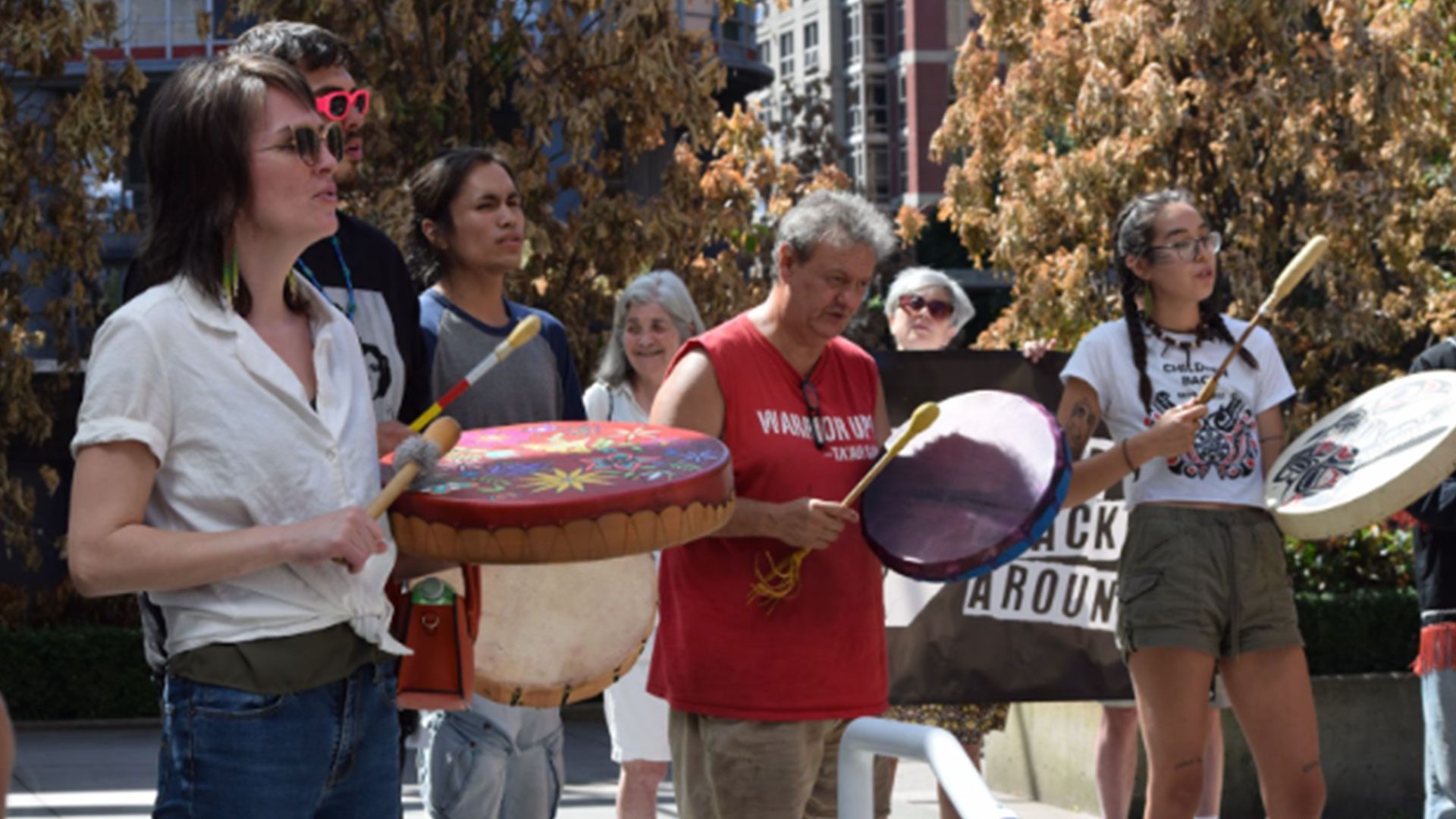
“What happens is we have police forces working with industry, working with government, sharing intelligence to create not only an atmosphere of harassment and intimidation and an attempt to discourage people from doing what they know is right,” he said.
“If you need guns and dogs and axes and warrantless entries in order to try to push through your pipeline — well first of all your consultation process sucked — but you clearly do not have consent.”
Kung said he questions why either project is going forward at this point, given that the estimated costs for both Coastal GasLink and Trans Mountain have soared by 70 per cent.
“The money they thought they were going to make is no longer even there, so what are we doing? Are we just infringing Indigenous rights out of muscle memory?” he asked.
“A lot of what’s happening is out of the main spotlight,” he added. “They’re counting on people not paying attention.”
To build on the relationship formed, Wet’suwet’en leaders gave gifts to Musqueam, Squamish and Tsleil-Waututh representatives in attendance including medicines, salmon and water from their homelands.
“I put together these bundles and I’ve been leaving one in each community that we go to,” said Wickham of one of the gifts, which was presented to Tsleil-Waututh land defender Rueben George.
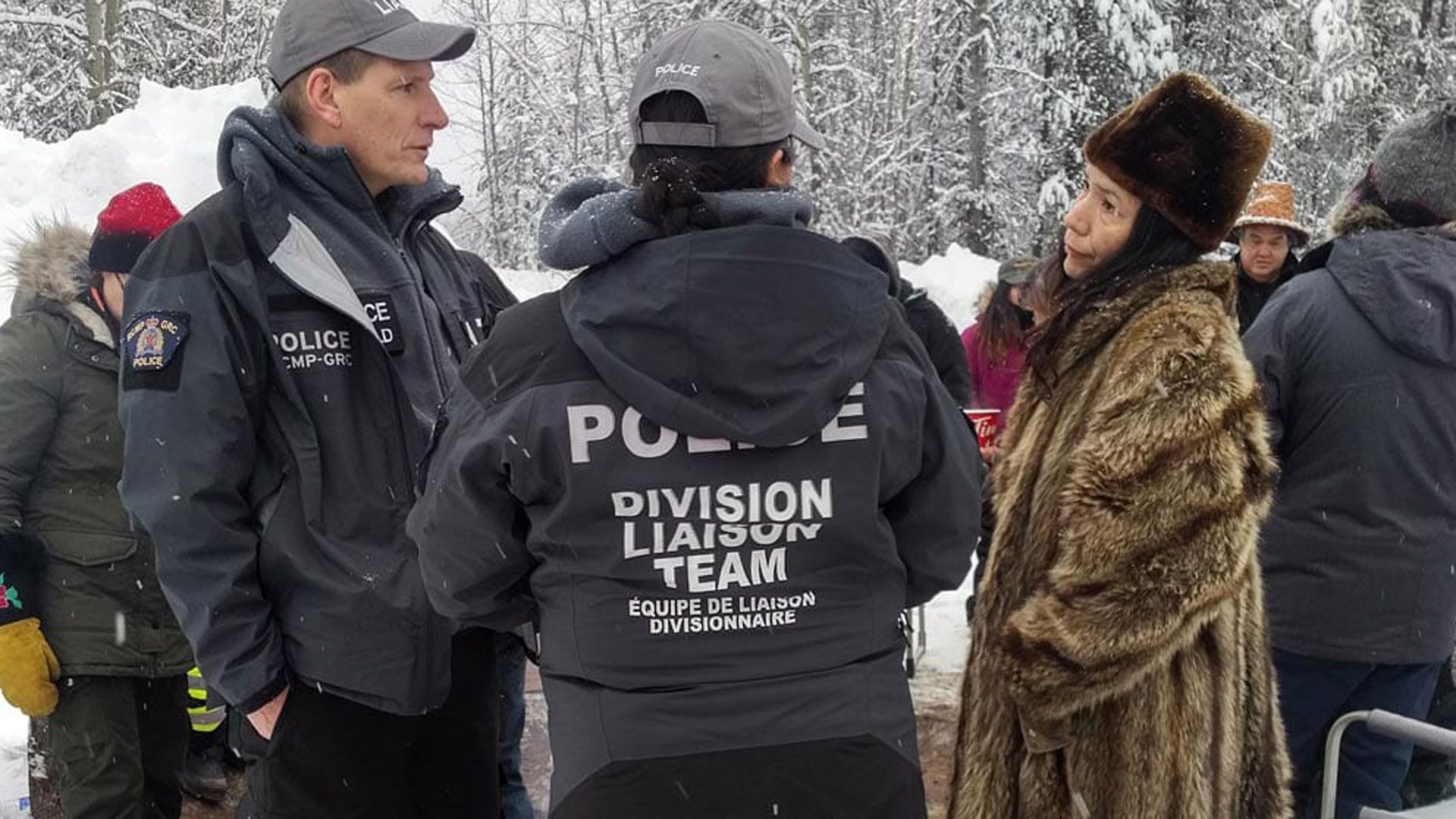
She said building relationships with other sovereign nations has been “beautiful, powerful and emotional.”
“We recognize the sovereignty in them as they recognize the sovereignty in us,” she said.
Namoks said that finding unity, and walking together in the footsteps of ancestors, is key when it comes to reclamation and resurgence.
“We show our hearts, we show our unity, we show our humanity,” he said.
“That is pure strength. That is a strength that they cannot handle. And that’s how you win. By being together. We could never move forward on our own, it must be all of us together.”











